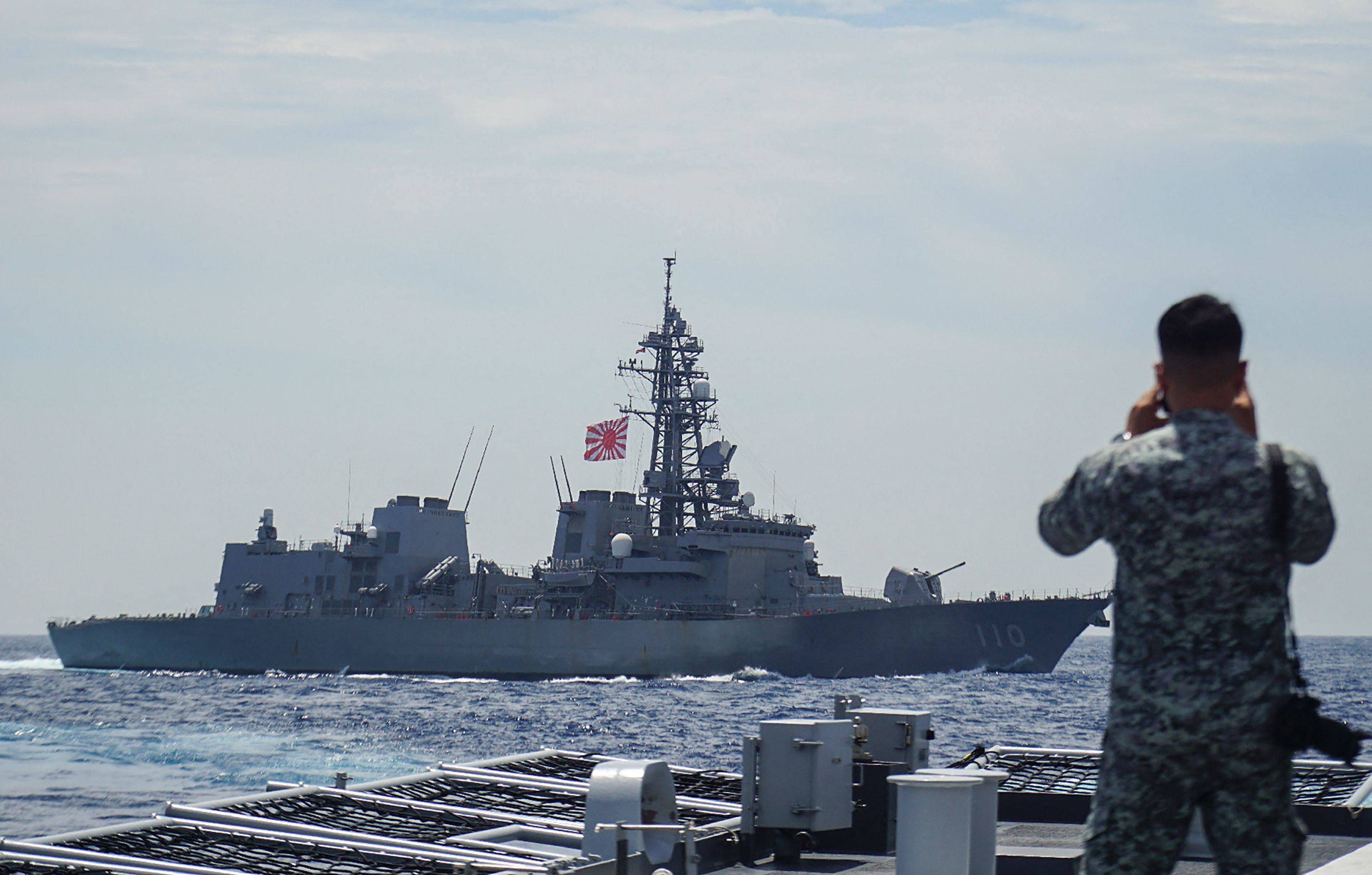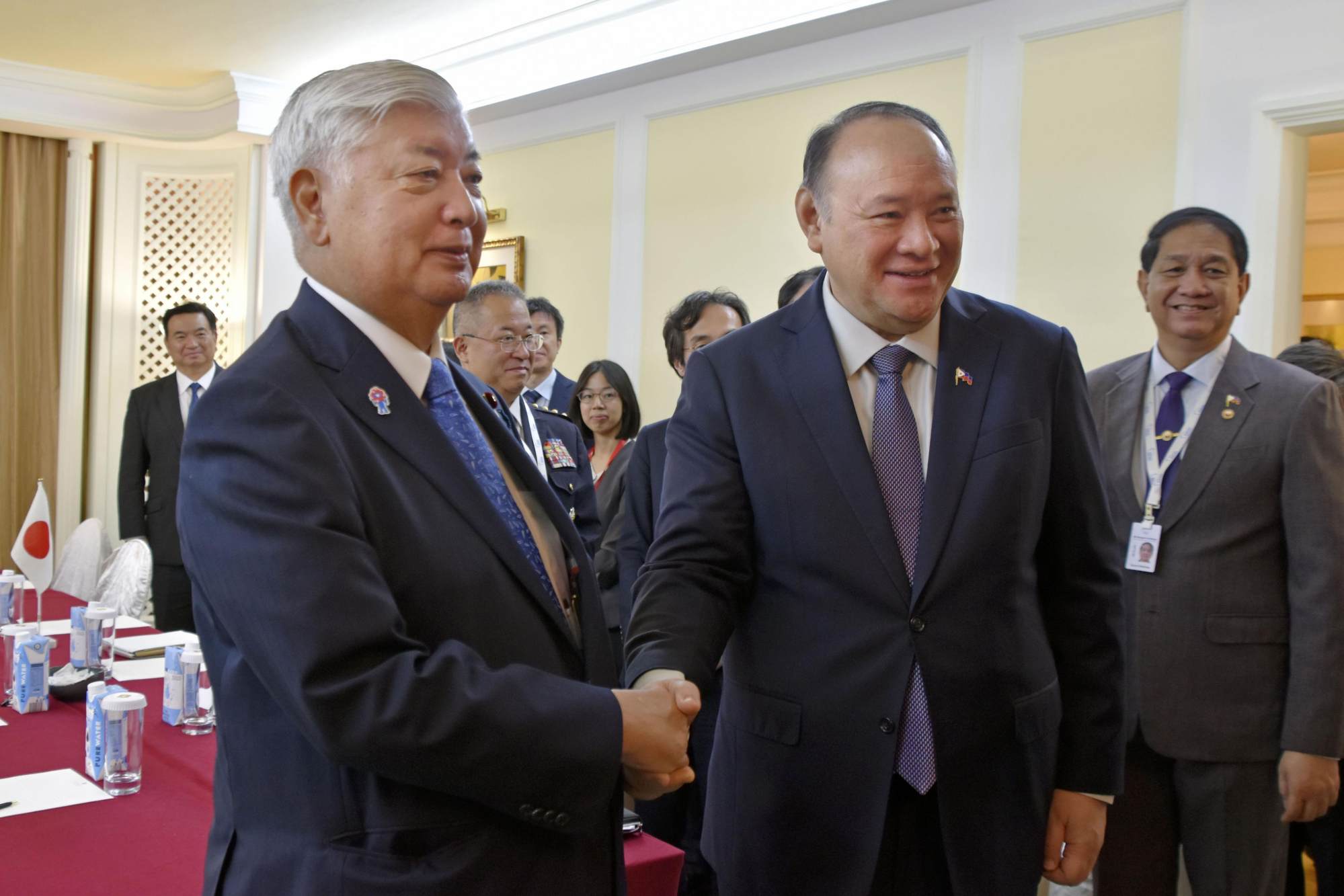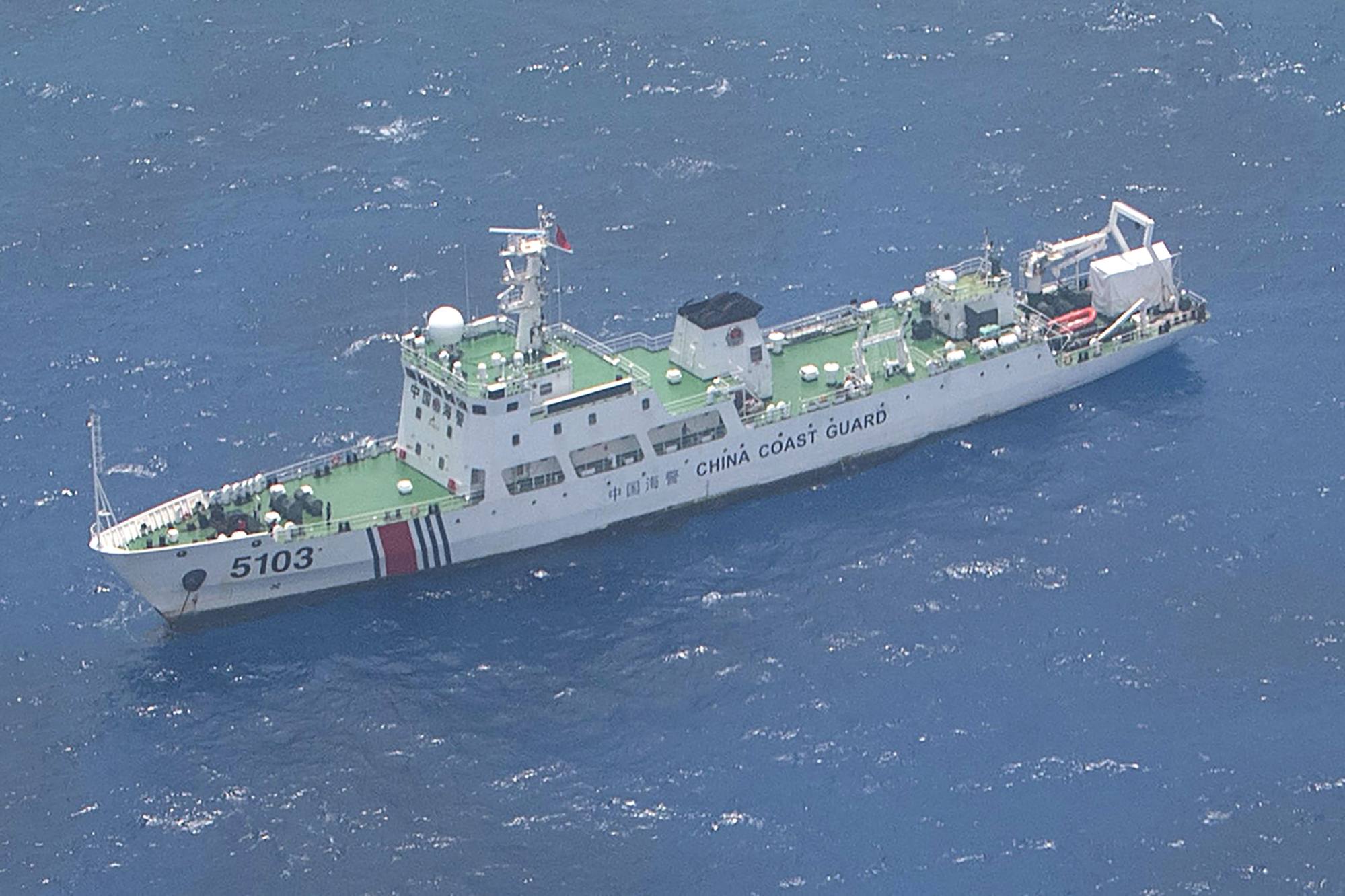Philippines to view maritime rows with China as ‘one theatre’, partner Japan
Strategy will treat the East and South China seas as a unified theatre of operations as regional allies align against Beijing’s growing influence

The Philippines is adopting a Japan-led strategy to treat the East and South China seas as a unified theatre of operations – a shift that is seen to reflect growing alignment among regional allies in the face of China’s expanding maritime footprint.
Defence Secretary Gilberto Teodoro said the “one-theatre” concept would promote operational synergy, intelligence-sharing and mutual reinforcement among members of the minilateral “Squad” – comprising the Philippines, Japan, the United States, South Korea and Australia.
“Since the threats to Japan, the Philippines, and other like-minded countries are principally maritime, even in geography Japan being an archipelagic nation and us, and in the aerial domain, it is reasonable since there is no land border involved to treat the area as one theatre,” Teodoro told local media at a press conference on Monday.
He was referring to Tokyo’s proposed security strategy concept to the US by Japanese Defence Minister Gen Nakatani to consider the East China Sea, the South China Sea, and the Korean peninsula as a single theatre, as reported by the Asahi newspaper.

Nakatani reportedly proposed a “one-theatre” approach to Defence Secretary Pete Hegseth when the US official was in Tokyo on March 30, which the Pentagon chief welcomed.
“Japan plans to deepen partnerships by viewing Japan, the United States, Australia, the Philippines, South Korea and others as a single theatre,” Nakatani was quoted telling Hegseth.
This would mean that Japan, the US and like-minded countries such as the Philippines would be called on to strengthen defence cooperation to prepare for emergencies in this theatre.
However, Teodoro said this area should exclude the Korean peninsula.
Japan and the Philippines have both been embroiled in tensions with China over disputed features in their respective seas.
Japan lodged a protest against China in June for erecting a new structure in a natural gas field in the East China Sea. Relations between the countries have also been strained due to tensions over the Diaoyu Islands, also known as the Senkaku Islands in Japan.
Meanwhile, Manila and Beijing have figured in intensifying clashes over disputed shoals and atolls in the West Philippine Sea, the Philippines’ term for its exclusive economic zone within the South China Sea.
Manila won an arbitral award in 2016 with an international tribunal ruling in its favour, though China has rejected this decision, asserting its nine-dash-line claim.
Teodoro said Japan’s Joint Operations Command, a new unit under its Self-Defence Force, was operationalising the single-theatre concept.
General Romeo Brawner Jnr, chief of the Armed Forces of the Philippines, is reportedly supervising the plan.
Meanwhile, the defence ministers of Australia, Japan, the Philippines and the US would establish a coordinating centre in December to enforce the concept, Teodoro said.
“So it is already an operating concept. It does not need any other agreement,” he said.
The strategy comes on the back of a reciprocal access agreement that Japan and the Philippines signed last year, allowing each country’s troops on each other’s soil for military exercises – seen as a step towards strengthening both countries’ ties amid geopolitical tensions with China.
The pact went into force after the Japan Diet ratified the agreement in June, six months after the Philippine Senate had done so.
Rommel Jude Ong, a retired rear admiral of the Philippine Navy and a professor at the Ateneo School of Government, said the single-theatre operation treated the East and South China seas as a single front and accepted the fact that China enjoyed interior lines of communication, or short routes that easily allowed its forces to manoeuvre and shift forces across both waters.
The one-theatre concept sets to formalise the various security arrangements in the Indo-Pacific region, according to Sherwin Ona, an international fellow at the Institute for National Defence and Security Research in Taiwan.
“These are steps to strengthen and broaden the Squad security arrangement,” Ona said.
Analysts said the single-theatre concept would take both seas into account.
“Questions of interoperability, jointness, and collaboration will come into force,” said Julio Amador, the interim president of the Foundation for the National Interest and founder and trustee of the non-profit policy advisory firm FACTS Asia.
Amador added that the development “further concretises the strategic partnership between Japan and the Philippines” and connected them both to their common ally in the US, while recognising China as a source of tension for all countries in the first island chain.

Ona said the concept was beneficial as it allowed these countries to “recognise a common source of threats” and “encourages allies and partners to adjust their operational doctrines and improve their capabilities”.
The Philippines would benefit from collective defence actions and agreements related to the concept could help bolster local defence industries, Ona noted.
“An example of this is enhancing maritime domain awareness. [This concept] underscores the importance of interoperability and sharing of information based on certain threat parameters,” he said.
In that vein, the Philippines would need to synchronise its archipelagic defence strategy with other states to allow mutual support of unilateral operations in the region, analysts noted.
“This would allow for a holistic approach on sea control of the Bashi Channel,” Ong said, referring to the strategic waterway between the Philippines and Taiwan that serves as a critical chokepoint for mainland China’s military operations.
The strategy would also enable sea denial against adversaries in areas of the Philippine Sea, he added.
The single-theatre concept set the stage for maritime activities among the Squad’s defence forces such as combined surface action group activities, maritime air surveillance, anti-submarine patrols, exercises, integrated sea denial activities along sea lines of communications, Ong said.
Observers also noted that the planned coordinating centre for the Squad was an important step towards institutionalisation.
Ong said the centre would enable a single command and control mechanism, as well as an integrated intelligence fusion centre, even for an informal minilateral grouping.